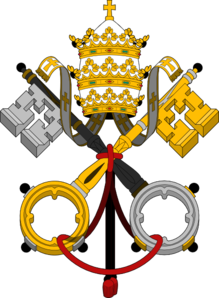The Novitiate.
Hello Everyone! I am sure you are here to read about the Novitiate. You are welcome. The novitiate is a special period in our formation process. It is that year during which the novice(s), as one in the womb of the Congregation, is accompanied to discern his vocation and if he is actually called to serve God as an Oblate. It lasts for a year during which the novice in the Spirit of Christ, journeys the spiritual, intellectual, communal and pastoral paths, in order to grow in deeper awareness of Christ’s love for him and his for Christ. Specifically during this year he deepens his knowledge about the OMV, their charism, spirituality and way of life. Thank you for taking out time to read this. Do follow us as we keep you updated! Mariam Cogita, Mariam Invoca!
Fr. Nonso Onyemeh, OMV
OJUELEGBA
James Ovie
It was 18th November, 2018, that was the Novitiate free day. On our way to the cinema we decided to eat something. The question of a suitable restaurant made us drive around for few minutes in Gwarinpa, Abuja and we finally came to ‘Ojuelegba’. It was a simple food joint yet popular. The personalities and cars packed around were quite much more than the restaurant could contain. The customers included all kinds of persons: rich and poor, male and female. But what baffled me was that it was so real, so authentic. Most people ate with their hands, even ladies and the rich. At last, I saw humans, real people, everyone put aside their titles; rich and poor, male and female shared table; it was Africa. And I said “behold the brotherhood we lost.” OJUELEGBA! Popularity or fame from the look of things was not based on its beauty or location. Aesthetically and in terms of its location Ojuelegba cannot size up to the mega restaurants in the capital city. But its fame and popularity comes from the fact that it’s a place for all where the rich and poor share tables. Everyone is a V.I.P. The food was affordable and delicious.
Pondering on the scene, and everything about Ojuelegba I likened it to what Prophet Isaiah spoke off in Isaiah chapter 55:1,“come of all of you who are thirsty and hungry, you who have no money, come, buy grain and eat…why spend your money for what is not real.” Again, reflecting on how the rich and poor share table, with the poor eating the same food as the rich because it was affordable and cheaper at Ojuelegba, I immediately saw the Table of the Eucharist where Christ offers himself for all: the rich and the poor partake from one chalice, and everyone is a firstborn son and a daughter of Zion!
More so, at the heart of our conferences and reflections this month is the ‘Liturgy’. In these days particular attention was given to the liturgy of the hours. It is a prayer of praise and supplication. It is the prayer of the Church with Christ and to Christ. The liturgy of the hours sanctifies the day and our activities. It consecrates the course of day and night. This particular message struck me about this beautiful form of prayer done by the Church.
TOGETHERNESS
Fr Nonso Onyemeh,OMVFinally we decided to make real the one thing that was important to deepen the communal life that already is being practiced in the Novitiate community: “the Novitiate free day.” So called because it is a day on which the novices and the director go out to visit interesting places and have the opportunity to breathe in some fresh air which is necessary to grace us with strength for the journey just begun. Since this was the first time, we decided to visit the cinemas and watch a Nigerian movie that has been the talk of the town for a while – “King of Boys.” It was simply good and very interesting and instructive to the extent that we found ourselves, together with a cousin of mine, talking about and analysing the various parts of the movie.
Seizing the opportunity to share my reflection upon the event of a little pause, I quickly talked about the scene where Inspector Gobir, having finally arrived the cell of Eniola amid the hot flames and suffocating smoke that filled the prison, lifted her up and carried her away to safety. This scene made real what Jesus did exactly for us: he risked his life by entering our prison of sin; broke it and carried us away. Unmerited grace made real in our being justified by the death and resurrection of Christ. Like Gobir risked his life to save Eniola, the gangster woman, Christ risked his life to save us sinners, accepting death that we be set free unto life. And this is what we celebrate in the Eucharist: our new life in Christ Jesus. The talk didn’t finish there, my people, we soon cracked jokes and commended the fact that Nollywood, in this movie, had set a magnificent pace and gave us all a window into an ideal of how our action movies can actually be! And that was it; fraternity deepened and was graced with laughter – the very food our souls needed to keep journeying the path of discernment refreshed. This togetherness took place on the 18th of November.
A REFLECTION ON PRAYER
By: Ovie James EmorirehPrayer is God’s gift of grace of loving communion with him. It is God’s initiative, a means through which man may approach and encounter God. Right from the creation of man, it is always God that takes the initiative of coming to man in relationship-in the garden he called out to Adam, and from the burning bush he called out to Moses. Hence the CCC 2725 rightly asserts that “prayer is both a gift of grace and a determined response on our part.” Yet it is the spirit that cry in us “Abba Father”. It is always his doing. In this way, even our response is the doing of the spirit that he gives. For without the spirit we do not know how to pray. And we may consequently do those things we do not want to do and avoid the good we propose to do. In prayer human relates, and expresses their needs of God and experiences more and more their own weakness, poverty, and lacks. The more we pray we learn our own limits. Hence at the heart of prayer is humility, the fact that man cannot do it for themselves. The foundation of prayer is humility (CCC 2559). As saint Augustine rightly wrote, ‘man is a beggar before God’. Begging implies humility that the one who begs acknowledges that he lacks, and professes that the one he begs is capable to supply for his lacks.
Prayer numbers among the few exercises that are necessities. The necessity of prayer lies in man insufficiency. Humans’ needs are quite beyond their reach so they reach out to God to quench their thirst and be feed with good things that they cannot give. It is therefore the whole man that prays, whether pagans or believers, at different times in our life, humans always desires his lacks to be filled by a higher being. He always in his heart desire a relationship with he that can satisfy his lack. And this is prayer. For it is the heart that prays. St Theresa of Lisieux buttressed this saying that for her, “prayer is a surge of the heart, a simple look turned towards heaven, a cry of recognition and of love, embracing both trial and joy.” The heart is our hidden centre, beyond the grasp of our reason and of others; it is the place of decision, deeper than our psychic drives. It is the place of truth, where we choose life or death. The place of encounter, because as God’s image we live in relation with him.
More so, prayer is equally a ‘battle’. The object of this battle is our inclinations to evil. It is battle against ourselves and the wiles of the tempter who does all he can to turn man away from prayer and from relationship with God. In this sense, prayer which comes from the heart is equally a watcher of the heart against ourselves and the tempter. Such is why Pope Emeritus Benedict XVI holds that in prayer we purifies our wills to conform to that of God. St Paul understands prayer as battle hence he insists that it is the spirit that prays for us and in us, transforming us from material inclined to love of God and neighbours.
It follows that in the battle of prayer, it should be said that though the spirit prays in us and for us does not exempt us from trials and suffering, but prayer does permit and assist us to live through trials and sufferings with a new strength in the light of Christ’s passion. It does enables us to abandon and overcome every forms of fear and slavery living as adopted children of God. For without prayer, we may do what we do not want to do (Rom 7:19)- and this is slavery to sin.
But even so, prayer is first learn in the family. And then our prayer gradually becomes one with that of Christ’s church. And Jesus is the model of our prayer. In Him we learn more and more that prayer is a living relationship with the father, and it takes place in the heart. And more so, in him at Gethsemane we learn that prayer is a battle against our selfishness and wiles of the tempter. Such is why the Lord’s prayer is the most perfect of all prayers.

















